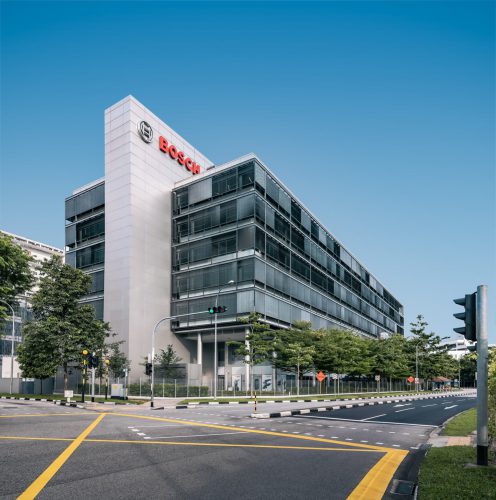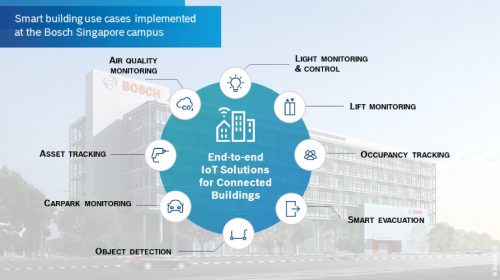
Through the integration of various smart building use cases, including daylight harvesting, air quality monitoring, asset tracking, lift monitoring, occupancy tracking, carpark monitoring, smart evacuation systems, and trolley detection, Bosch has transformed its Singapore campus into a model of efficiency, sustainability, and occupant comfort. By leveraging cutting-edge IoT technologies and strategic partnerships, Bosch has successfully optimized building operations, reduced energy consumption, and improved overall functionality.
Bosch has meticulously integrated a plethora of cutting-edge features, each meticulously designed to elevate efficiency, enhance comfort, and prioritize safety within its premises. Through the implementation of advanced daylight harvesting techniques and intelligent light scheduling, Bosch optimizes the utilization of electric lighting while fostering an environment conducive to productivity and well-being. Complementing this initiative, state-of-the-art air quality monitoring systems meticulously track and manage indoor air parameters, ensuring that occupants breathe pristine, healthful air at all times. Moreover, Bosch leverages Bluetooth beacon technology to meticulously track equipment and resources across the campus, thereby streamlining operational efficiency and curbing maintenance costs. Elevating safety standards, the campus is equipped with Lift Manager systems, harnessing predictive analytics and proactive maintenance strategies to ensure seamless and reliable lift operations. Furthermore, Bosch’s sophisticated occupancy tracking methods, coupled with CCTV-enabled car park monitoring and smart evacuation systems, underscore its unwavering commitment to security and operational efficiency.

The implementation of the smart building concept on the Bosch Singapore campus is a work in progress. In the future, there are plans on integrating the Bosch Connected Building with our BMS and HVAC systems, which may allow for things like being able to take personalized microclimate with them no matter where a person sits in the building, or the light in the meeting room changing color if the noise level is too high. The Case Study of the Bosch Singapore Campus provides the growing importance of smart buildings in enhancing efficiency, sustainability, and occupant well-being.